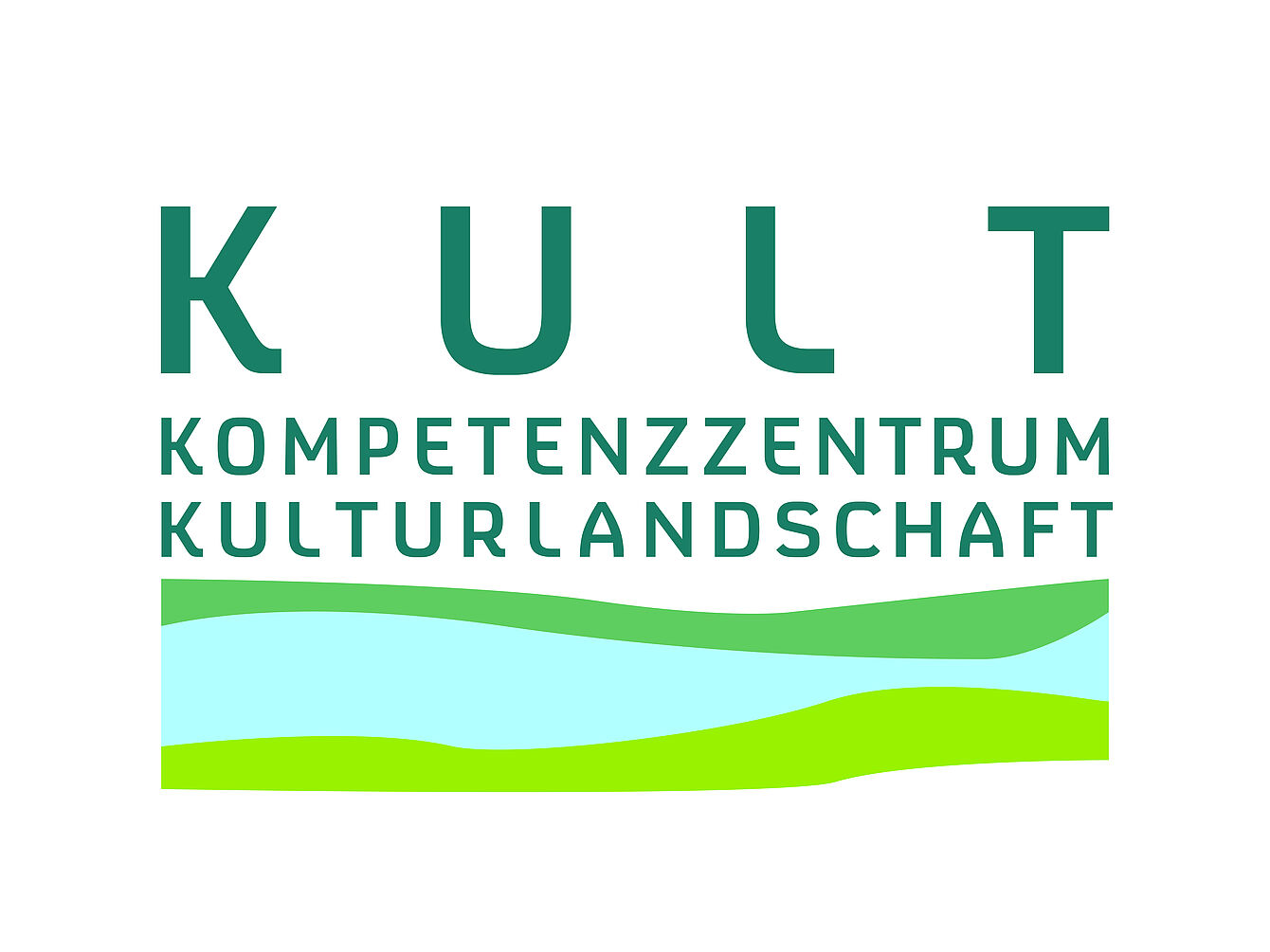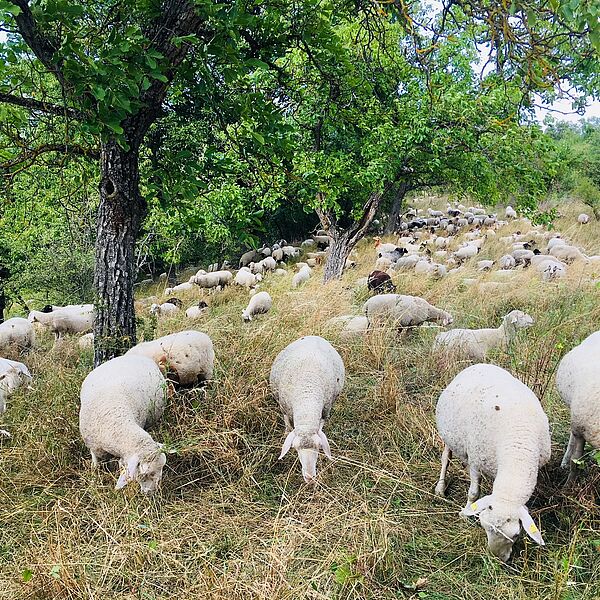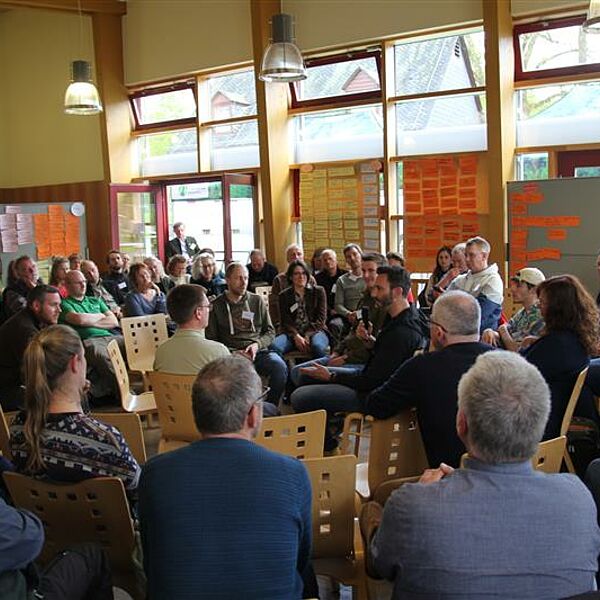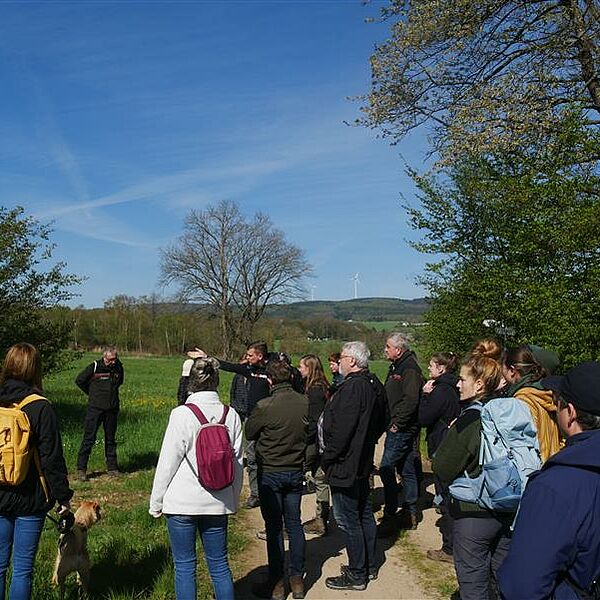In mid-September, Prof. Dr. Annette Reineke, Vice-President of Research at Hochschule Geisenheim University, and Ayse Asar, State Secretary in the Hessian Ministry of Science, Research and the Arts, symbolically broke ground for the new Viticulture Adaptation Center for Sustainability and Climate Change (VITA). In the new building, which is scheduled for completion in 2026, Geisenheim scientists will conduct interdisciplinary research on the effects of climate change on viticulture - and develop solutions and adaptation strategies that will be put into practice through knowledge and technology transfer.
Researchers from the fields of microbiology, plant protection, plant constituents, plant nutrition, and climate impact research will work together in four working groups to study the effects of changing climatic conditions on plant metabolism, interactions between grapevines and associated organisms, ecosystem functions, and water and nutrient flows in vineyards.
Based on their findings, they will develop solutions to improve plant and soil health, for example through the targeted introduction of microorganisms. Another research objective is the development of novel biological crop protection products through the isolation and formulation of bioactive plant compounds. Commercial exploitation and market introduction will take place in collaboration with companies, preferably small and medium-sized enterprises. Research will also focus on carbon-storing fertilizers and soil additives based on biochar, as well as more efficient use of water and nutrients.
As key components for all planned research activities, the VITA Research Center will include phytotrons and vineyard ecotrons, which allow scientists to grow grapevines and related organisms above and below ground under well-defined and reproducible climatic conditions. Phytotrons are walk-in greenhouse chambers for growing plants in containers, and ecotrons are research units for manipulating and measuring complex ecological interactions in the vineyard ecosystem.
“Thanks to its unique infrastructure, VITA will enable us to produce and test sustainable products for improving plant and soil health and the resilience of vines to climate-related stressor on a plant or microbial basis", says Prof. Dr. Annette Reineke. This could make an important contribution to the much-needed development of sustainable cultivation strategies while increasing biodiversity.
At the same time, scientists will assess potential risks and undesirable side effects of product use, such as increased nitrate leaching into groundwater, or greenhouse gas emissions. The side effects will be evaluated on the university’s own vineyards under real-life conditions. Selected strategies will also be tested and adapted for other special crops such as apples.
“The concepts developed in VITA will contribute to our overall goal of developing strategies for a sustainable and livable future. In this context, we are also making an important contribution to the global goal of a more sustainable, efficient and resilient type of agriculture, to the United Nations Sustainable Development Goals and to the EU's Green Deal”, concludes Prof. Dr. Annette Reineke.
Based on the decision of the Joint Science Conference (GWK), the construction costs for the VITA Research Center of more than 30 million euros will be equally shared by the federal and state government. The research center with offices, laboratories and plant breeding infrastructure will accommodate 25 researchers from the four research groups.










